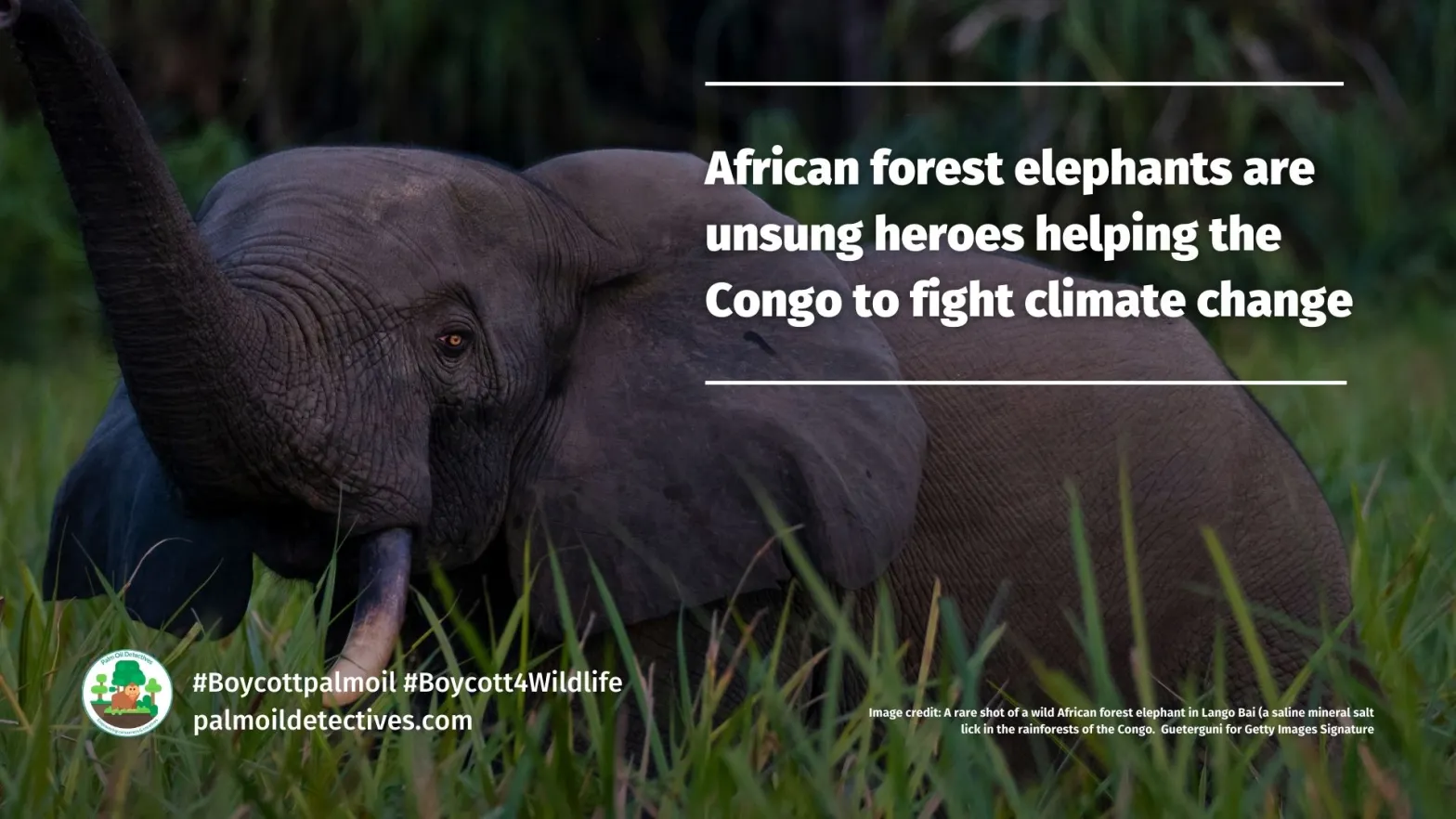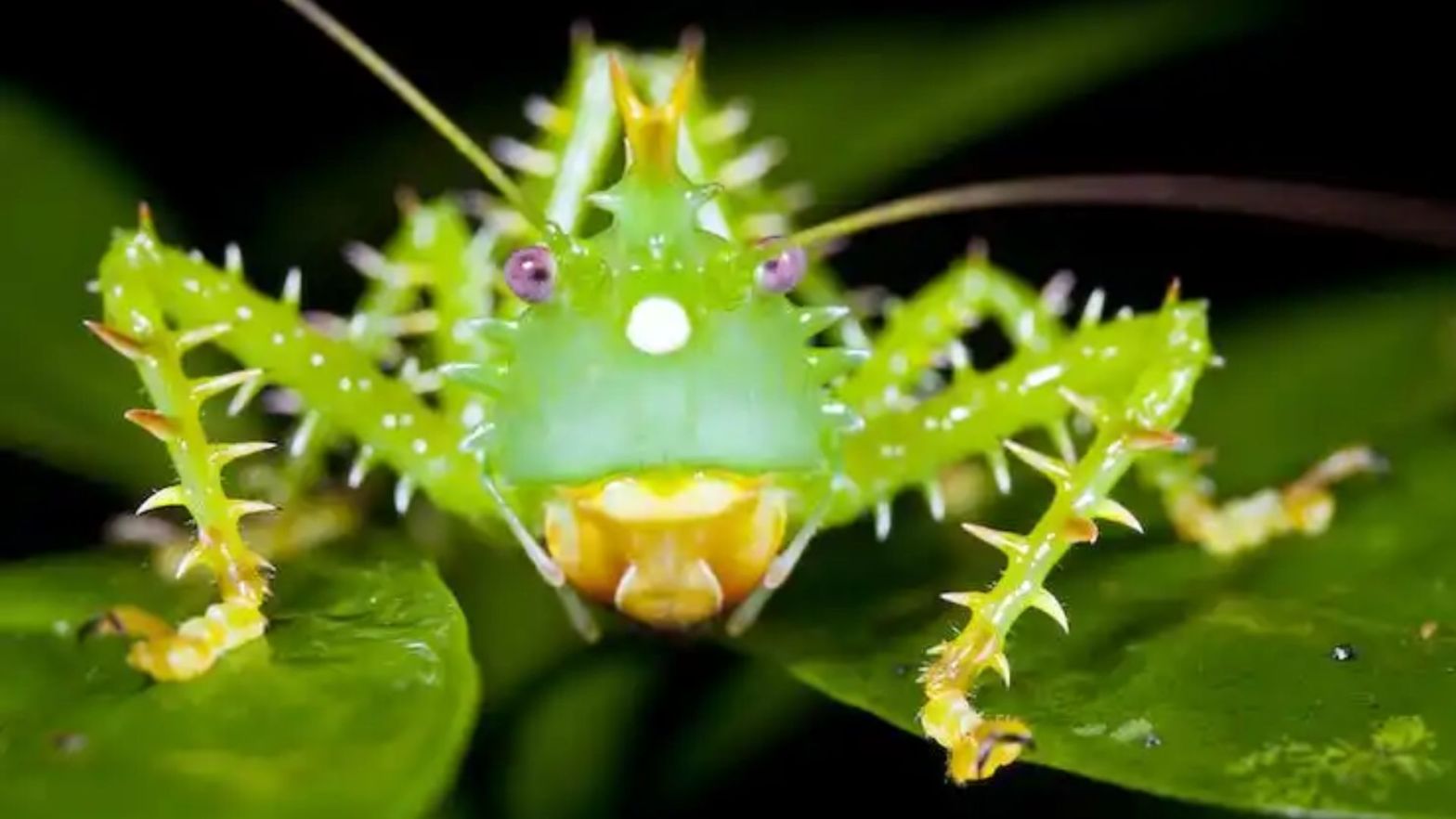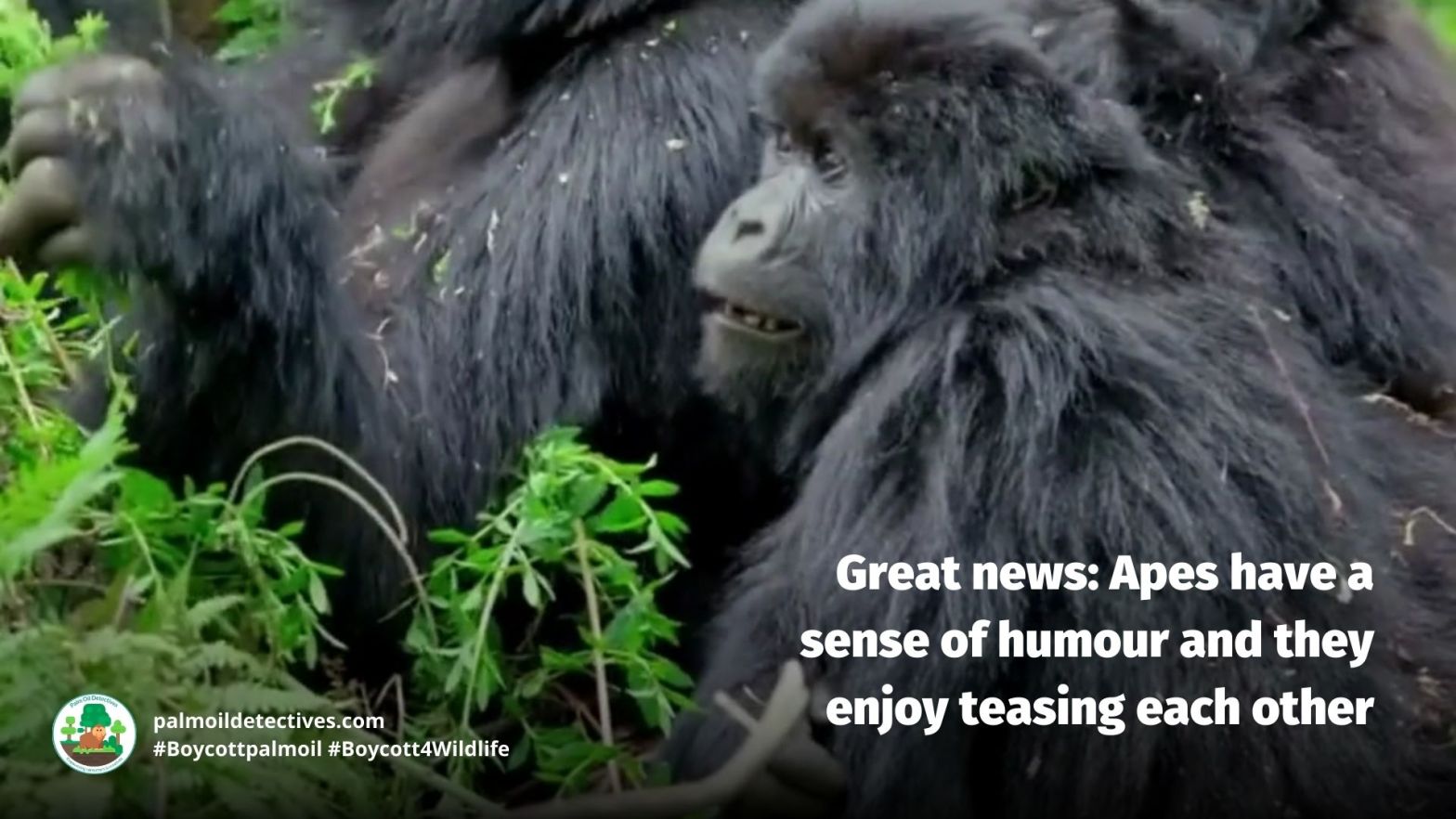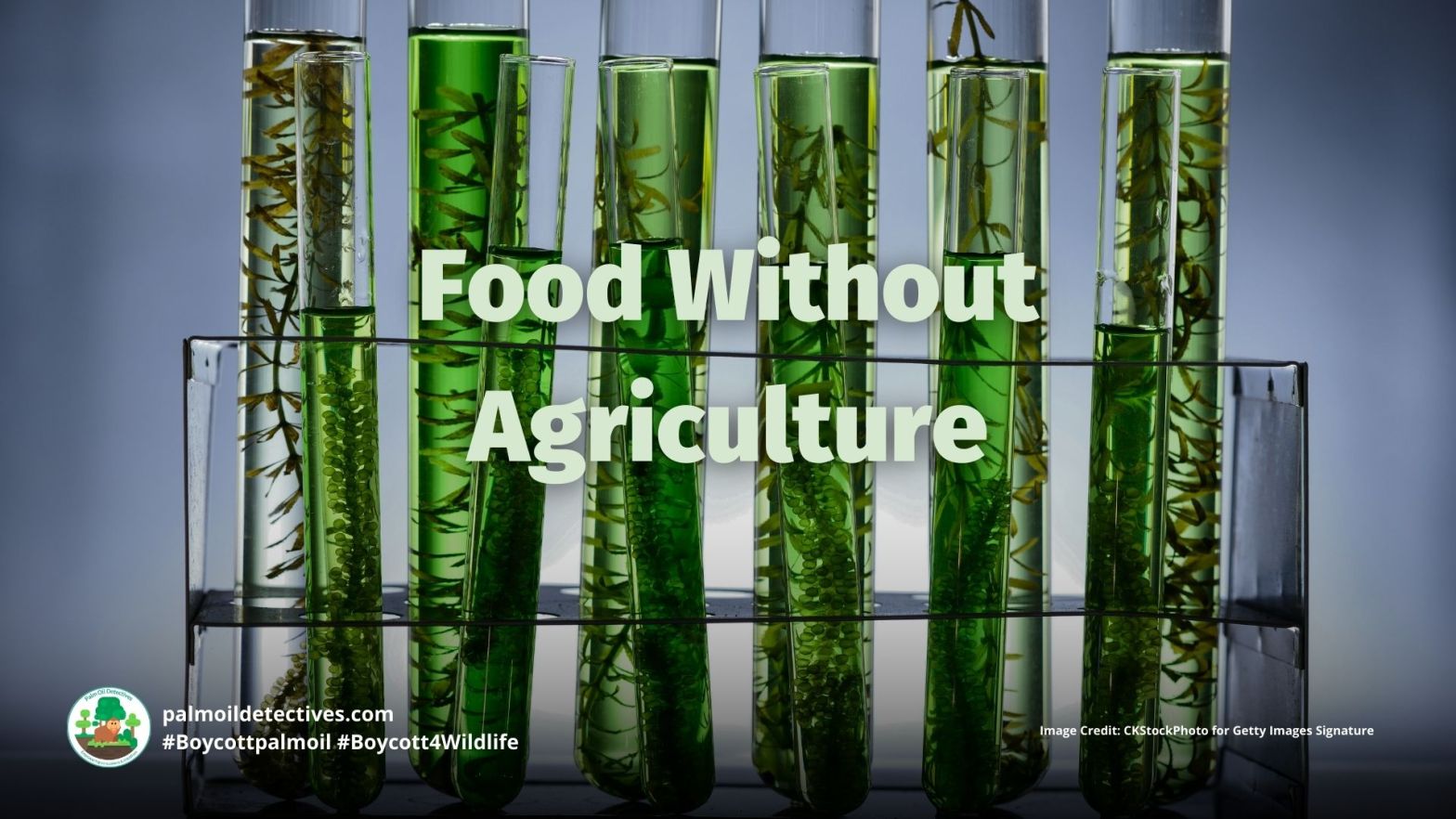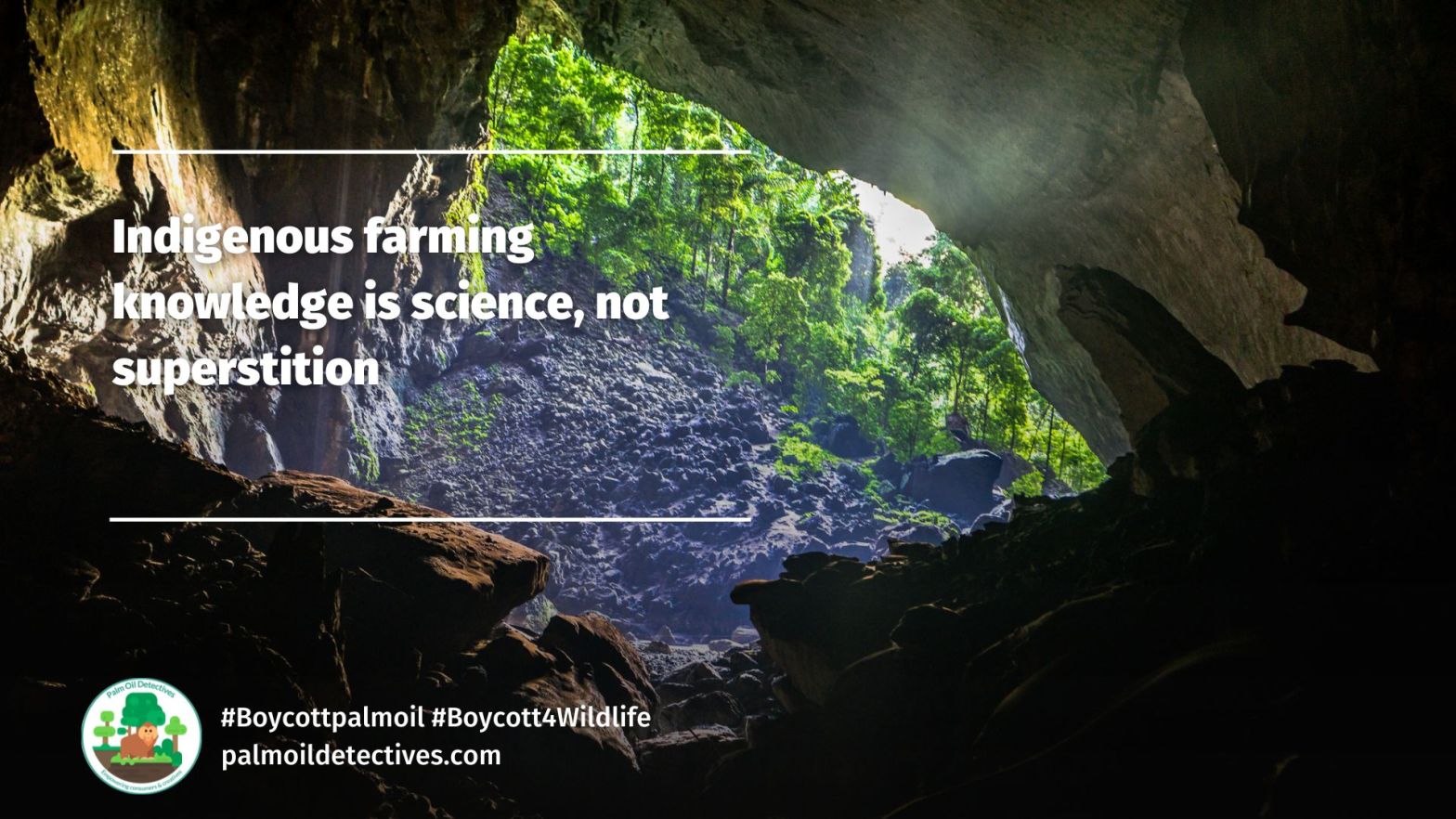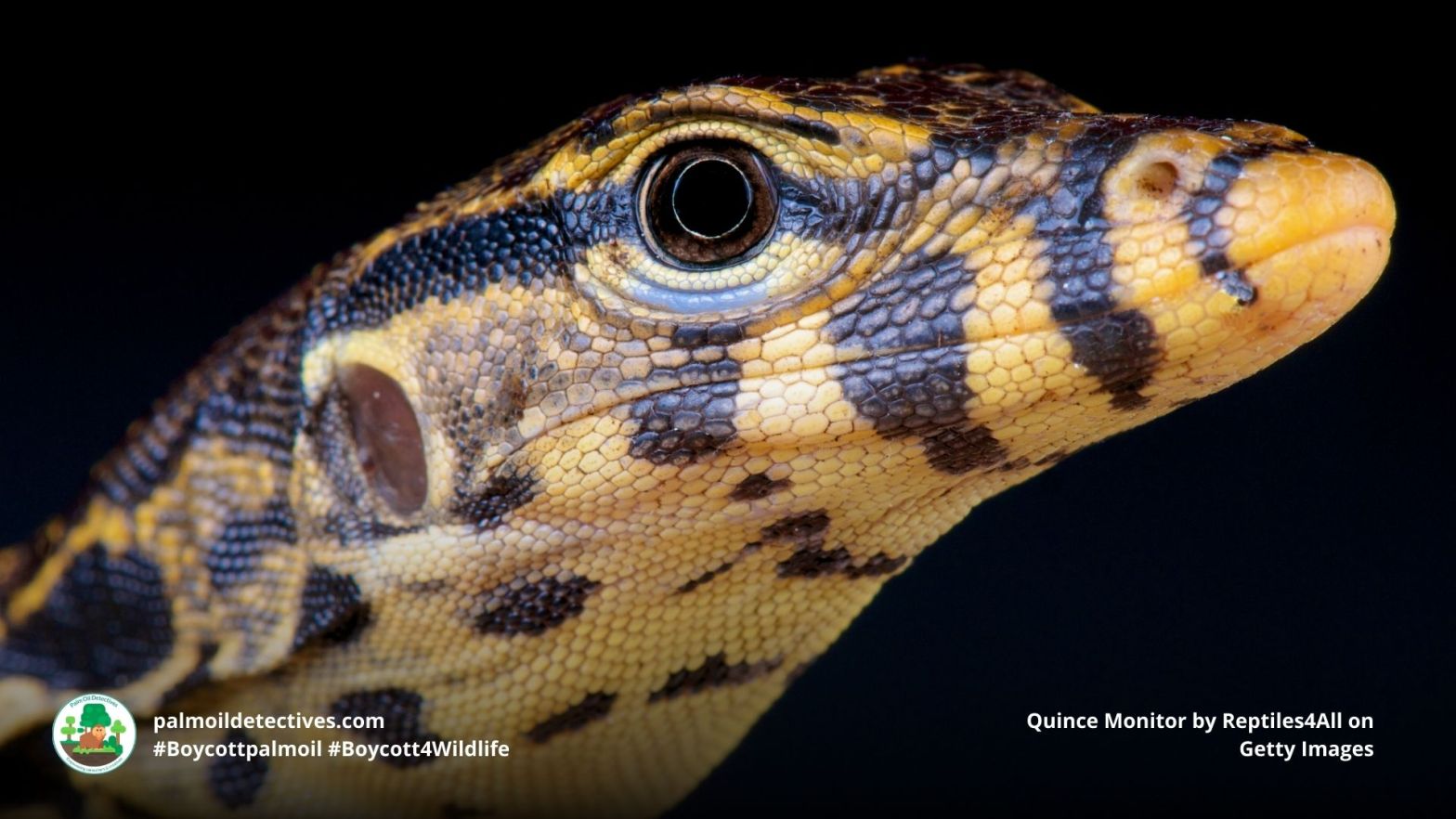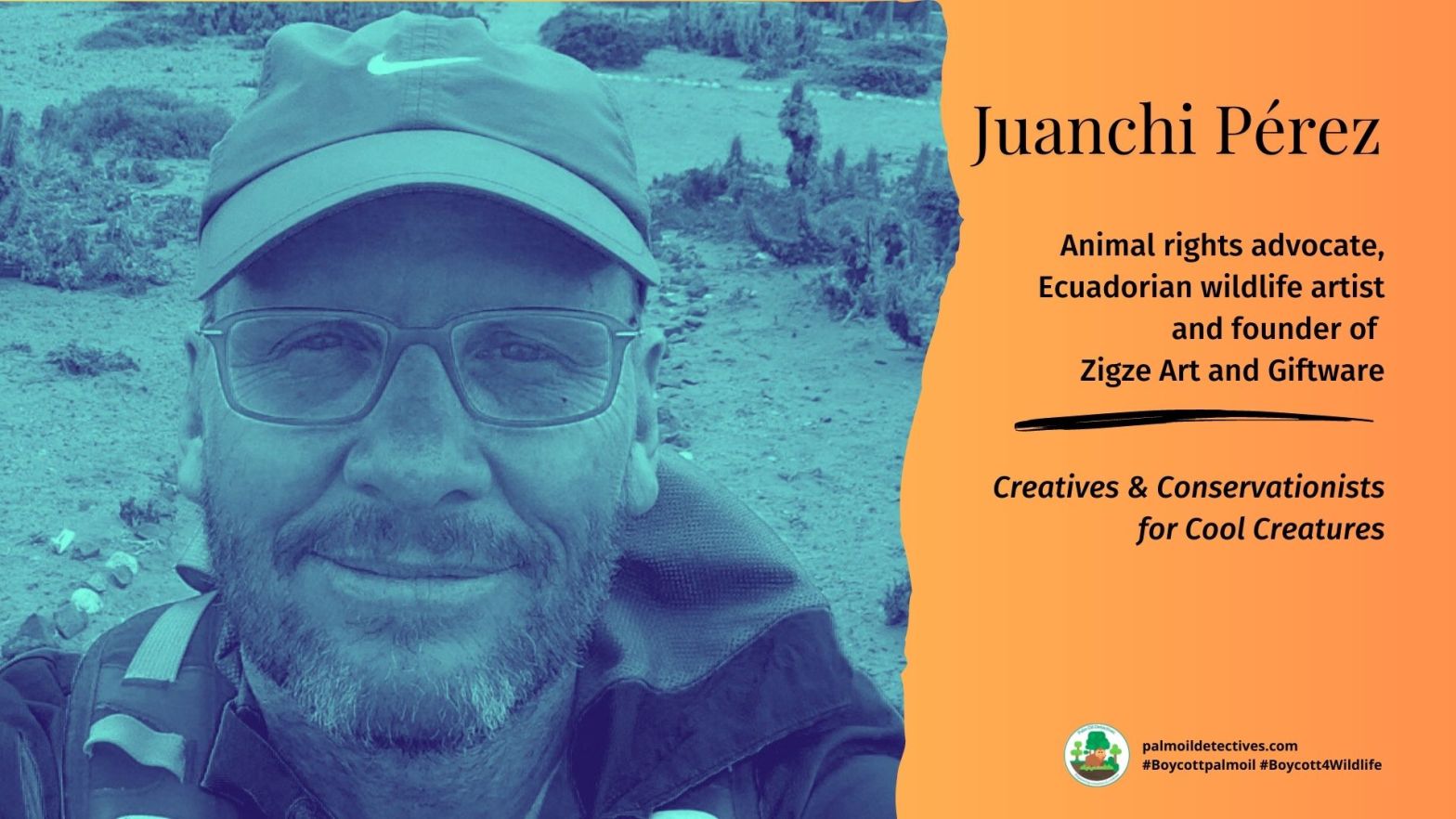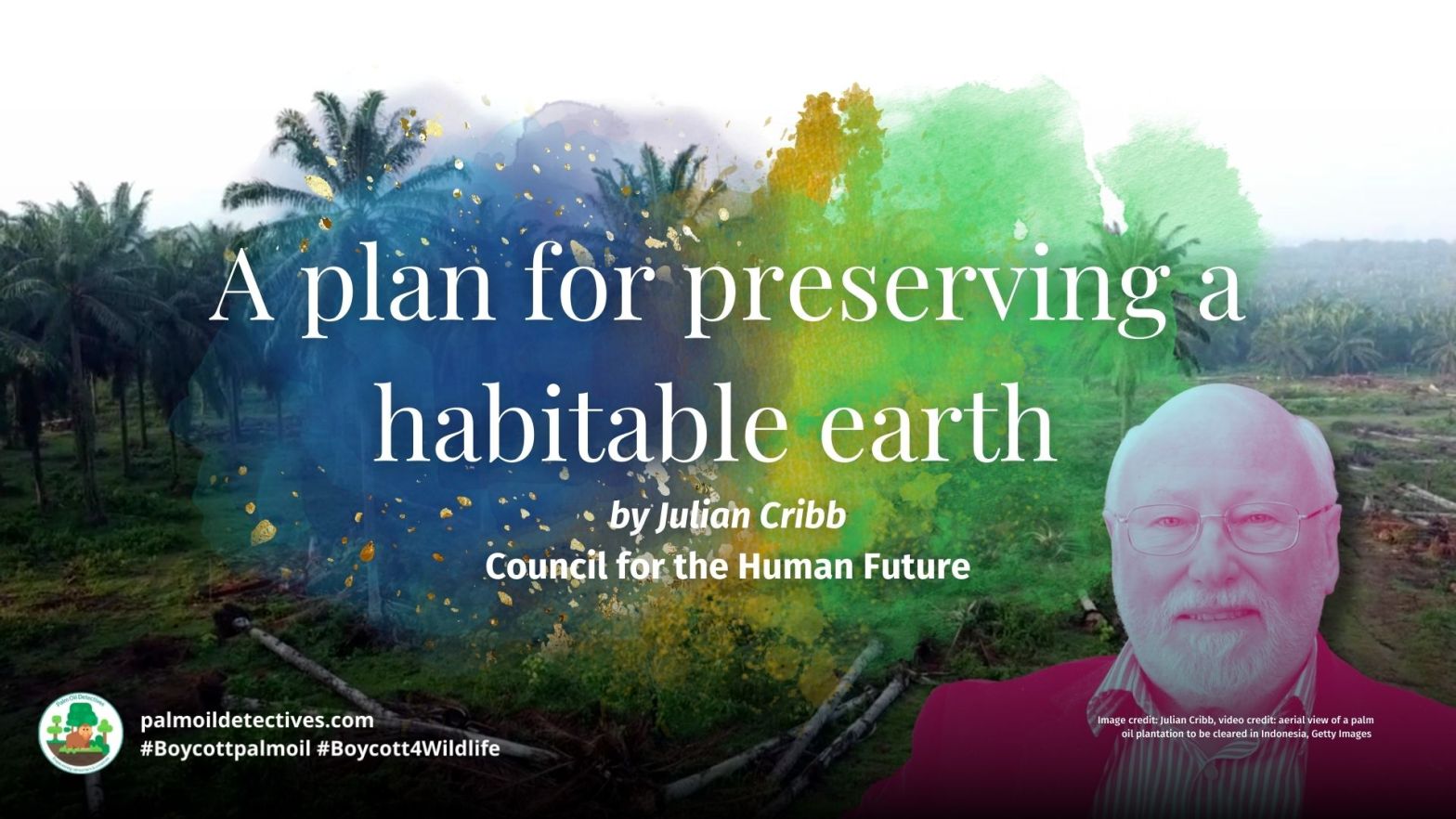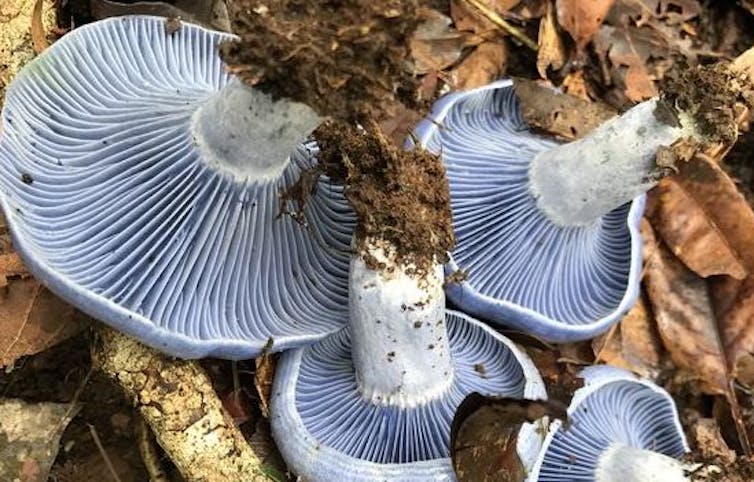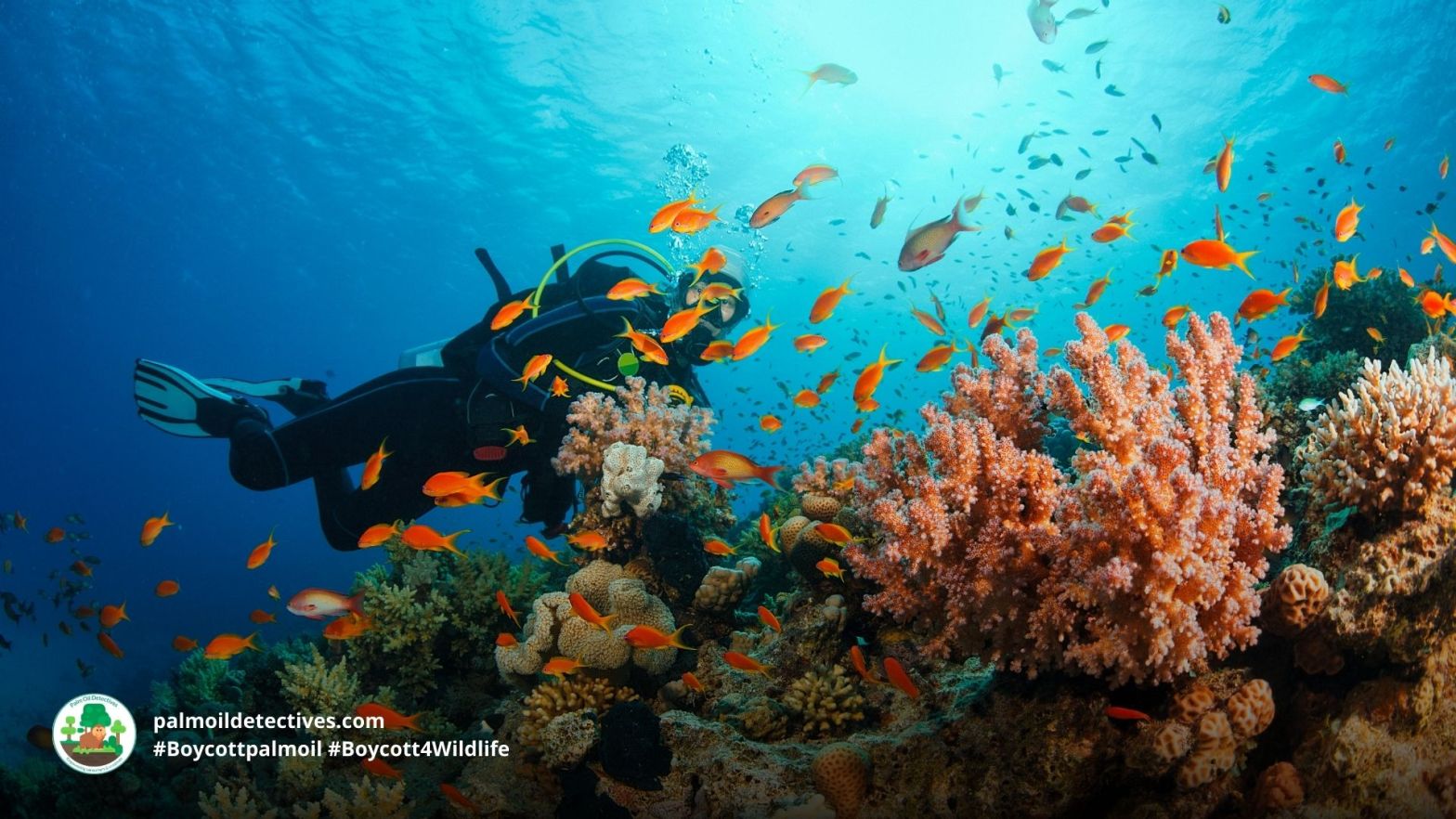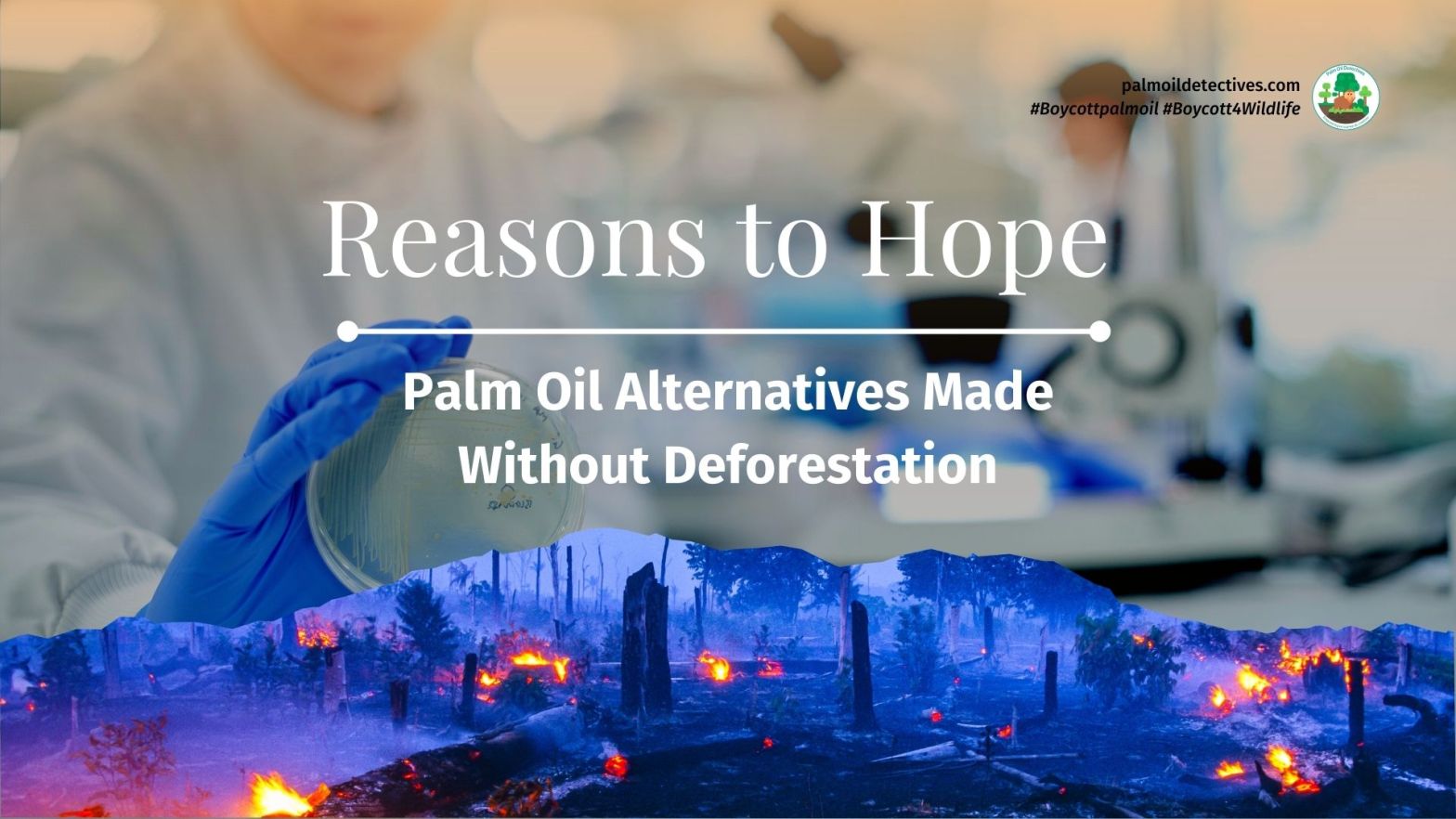Discover the awe-inspiring role of African forest elephants in the Congo Basin—nature’s master gardeners who literally shape the world around them! These gentle giants roam through muddy, mineral-rich paradises called baïs, fostering the growth of carbon-absorbing trees that make our planet healthier. By tending to these unique landscapes, they are the unsung heroes in the fight against climate change. Want to ensure these ecological architects keep doing their vital work? Join the movement to protect their habitat—say no to palm oil and adopt a vegan lifestyle! 🐘🌳#BoycottPalmOil #BeVegan #Boycott4Wildlife
Category Archives: Reasons to be Hopeful
Some of the world’s strangest species could vanish before they’re discovered – Help them and #Boycott4Wildlife
Scientists have described around 1.5 million species on Earth – but how many are still out there to be discovered? This is one of the most heated debates in biology. Discounting microbes, plausible estimates range from about half a million to more than 50 million species of unknown animals, plants and fungi.
Our present knowledge is just scratching the surface. Evolution has had billions of years to create biologically active compounds that can combat human diseases, generate genetic diversity that could save our food crops from disastrous pathogens, and spawn ecological innovations that can inspire marvellous new inventions.
Great news: Apes have a sense of humour and they enjoy teasing each other
New research finds that it is not only human babies who love to playfully tease each other. Researchers reasoned that since language is not required for this behaviour, similar kinds of playful teasing might be present in non-human animals. Now cognitive biologists and primatologists have documented playful teasing in four species of great apes. Like joking behaviour in humans, ape teasing is provocative, persistent, and includes elements of surprise and play. Because all four great ape species used playful teasing, it is likely that the prerequisites for humour evolved in the human lineage at least 13 million years ago.
Food Without Agriculture
In a 2023 article published in Nature Sustainability, researchers write that food production can be more sustainable by focusing less on traditional agriculture and more on alternative methods, like chemical and biological processes.
The article highlights a specific example where dietary fats can be produced with significantly lower CO2 emissions compared to current methods used in palm oil production in Brazil or Indonesia. While acknowledging challenges like potential impacts on agricultural economies and the need for consumer acceptance, the abstract suggests that these new methods could greatly reduce the environmental impact of agriculture, especially in terms of greenhouse gas emissions, land, and water use in the next decade.
Indigenous farming knowledge is science, not superstition
What does it mean when you encounter snakes slithering along paths or find a bird nest with eggs? For Indigenous peoples in Malaysia, these are tell-tale signs passed down by their ancestors discouraging them from using the land. Instead, they must protect the area from unscrupulous developments.
Climate and extinction crises move too slowly for us to pay attention – here’s the answer
It seems we are having a hard time paying sufficient attention to the climate and extinction crises. This is because the causes for the most part move slowly, without the flashy drama that can focus our minds in the midst of 24-hour news cycles and social media distractions. The Netflix film Don’t Look Up cleverly captures our inability to focus on and come together to counter such a common threat. To change this, we must develop a “slow memory” that can help us care about and act on slow change. #Boycottpalmoil #Boycott4Wildlife
Reptiles: why one in five species face extinction. Here’s how you can help them
#Reptiles are fascinating creatures who are sadly feared, misunderstood and persecuted by humans. It’s time we stand up for #lizards #snakes #crocodiles #turtles, here’s how #Boycottpalmoil #Boycott4Wildlife
Wildlife Artist and Animal Rights Advocate Juanchi Pérez in His Own Words
Juanchi Pérez is a talented and well-established designer, illustrator and artist from Ecuador who captures the soulful presence of rare rainforest animals near his home.
He is passionate about sharing the magnificent animals and plants of his bountiful homeland with the world. Together with his beautiful wife and daughter, he founded art and giftware brand Zigze several years ago.
Op-Ed: A plan for preserving a habitable earth by Julian Cribb
Renowned and prolific science communicator and author Julian Cribb writes this op-ed piece for Palm Oil Detectives. He addresses the world’s most pressing needs for survival as we descend into the pointy end of the Anthropocene era.
Julian outlines a dozen direct and actionable solutions for preserving a healthy and habitable earth. These are taken from his interviews with the world’s brightest minds. For a more in-depth analysis, be sure to grab a copy of his most recent book, published this year – ‘How to Fix a Broken Planet’
How the humble mushroom could save forests and fight climate change
The conversion of forests to agricultural land is happening at a mind-boggling speed. Between 2015 and 2020, the rate of deforestation was estimated at around 10 million hectares every year. What can you do? Stop eating meat and eat mushrooms instead!
The right for nature to simply exist is clear – the movement to enshrine this into law is growing
The idea that nature — forests , rivers, mountains — could have rights, in the same way that human rights, or corporate rights exist has been building momentum.
The dying days of 2022 saw a historic global agreement reached to try to protect the plants and animals of this world from further demise.
News stories about spiders are unfairly negative – here’s how to tell the truth about spiders
Frequent errors in news reports likely contribute to the animals’ undeserved bad reputation Spiders are pretty remarkable. They live almost everywhere, from rainforests to deserts. Some even spend most of their lives underwater. They are smarter than you think, with some able to make plans and count. Scientists think they might even dream when theyContinue reading “News stories about spiders are unfairly negative – here’s how to tell the truth about spiders”
Uncovering secrets of the glasswing butterfly’s see-through wings
Most butterflies sport colourful, eye-catching wings. But some species flit about using mostly transparent wings. Researchers have now uncovered the tricks that one of these — the glasswing butterfly (Greta oto) — uses to hide in plain sight.
Researchers viewed the wings of these Central American butterflies under the microscope. There they spied sparse, spindly scales overlaying a see-through wing membrane. That membrane also has antireflective properties. It’s that combo that makes these insects so stealthy.
Soy and palm oil agriculture is destroying the planet: algae is the answer
Consumers, businesses and researchers have shown growing interest in microalgae in recent years. Use of Arthrospira platensis (spirulina) as a food supplement is one example. Others include how microalgae can be used as crop support tools, bioplastics or biofuels. Agriculture is destroying the planet: algae is the answer The emerging and predicted impacts on agricultureContinue reading “Soy and palm oil agriculture is destroying the planet: algae is the answer”
Do humans really need other species?
Do humans really need other species? Yes! millions of organisms are needed to keep ecosystems in balance and ensure everyone can survive. Most importantly, #research shows other species make us happy! Research shows that people are healthier and more content when they are around other species of plants and animals. They need to experience the sights, sounds, smells, feel and taste of other organisms for mental and physical health. This drive is called “biophilia,” meaning love of living things. #Boycott4Wildlife
Palm oil substitutes can offer beleaguered rainforests a fighting chance
Palm oil is a versatile substance used in a wide range of products from foods to cosmetics. The trouble with it is that the cultivation of oil palm trees has caused massive enviromental harm, especially in Malaysia and Indonesia, which together account for 85% of palm oil production in the world.
But scientists from Nanyang Technological University in Singapore and the University of Malaya in Malaysia say they have an answer as to how we can wean ourselves off palm oil.
Seaweed is high in vitamins and minerals – but that’s not the only reason westerners should eat more of it
Edible seaweeds and algae – or sea vegetables – are a group of aquatic plants that are found in the ocean. Kelp, dulse, wakame and sea grapes are all types of seaweeds that are used in seaweed-based dishes. Seaweeds are a highly versatile and nutritious food source that can benefit our diet. Seaweeds are often rich in fibre and high in vitamins and minerals. This includes iodine and vitamin B12, which can be lacking in vegetarian and vegan diets.
Mel Lumby: The beautiful begonias of Borneo and beyond deserve our love and protection
Begonias, along with orangutans and many other rainforest inhabitants are in danger now. Will these precious jewels of the jungle be located by scientists, described, eventually named and shared, so that people can love and marvel at their incredible beauty? Or will the bulldozer get there first, destroying where they live, making way to plant oil palm plantations for cheap palm oil? Retired horticulturalist and animal advocate Mel Lumby will keep fighting for as long as she lives.
Celebrate #WorldRhinoDay by leaving the forests alone and #Boycottpalmoil in the supermarket to save Rhinos
Indonesia is home to two of the world’s five rhinoceros species. Both the Javan rhino Rhinoceros sondaicus and the Sumatran rhino Dicerorhinus sumatrensis still exist today, uniquely only in the country. In India’s north east, the Indian Rhino hangs on to survival. Yet their existence has become increasingly fragile due to the unrelenting growth of palm oil in both of these countries.
#WorldRhinoDay is 22nd Sept. But every day should be World Rhino Day as three of the five species of rhino may go extinct as a result of #palmoil #deforestation and illegal poaching. Fight for them each time you shop and be #vegan and #Boycottpalmoil #Boycott4Wildlife.
Reasons to Hope: Palm Oil Alternatives Made Without Deforestation
Environmental organisation Milieudefensie have calculated that every second, around 169 trees are cut down in tropical rainforests. So the race is on to find a real solution to stop this! Right now, several new technologies are furiously competing with each other to create a healthier, lab-created alternatives to palm oil. Palm oil has been historically grown inContinue reading “Reasons to Hope: Palm Oil Alternatives Made Without Deforestation”

